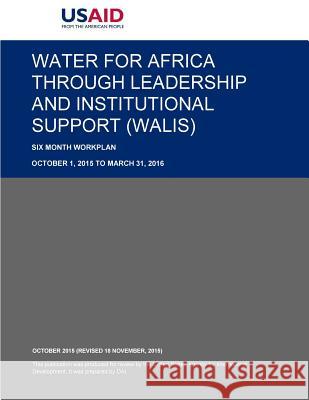Water for Africa through Leadership and Institutional Support (WALIS) » książka
Water for Africa through Leadership and Institutional Support (WALIS)
ISBN-13: 9781535306164 / Angielski / Miękka / 2016 / 26 str.
Despite significant progress made through donor and NGO investments over the past thirty years, a large percentage of Africans still lack access to clean water and proper sanitation. The data that African countries report to the Joint Monitoring Programme (JMP) often masks significant disparities between rural/urban populations and between rich and poor. These statistics also fail to capture the impact of poor water and sanitation access on women and girls who bear the primary responsibility for collecting and managing household water supplies and hygiene. They also face greater health and safety issues when confronted with limited access to sanitation facilities. Many African countries are testing and applying different approaches to improve access to clean, safe water and improved sanitation. These offer good examples of market-oriented and public-private partnership approaches that can help countries address specific water, sanitation and hygiene (WASH) challenges. Unfortunately, too often these examples and the lessons they generate get little notice or dissemination outside the country or city where they take place. Based on our experience, replicating successful WASH models requires two key ingredients: (1) wide availability of information about the approach and how it was developed (i.e. not just a simple success story); and (2) the local capacity to understand and adapt the approach to the different political, social, economic and environmental conditions reflected in the targeted country or region.
Zawartość książki może nie spełniać oczekiwań – reklamacje nie obejmują treści, która mogła nie być redakcyjnie ani merytorycznie opracowana.











